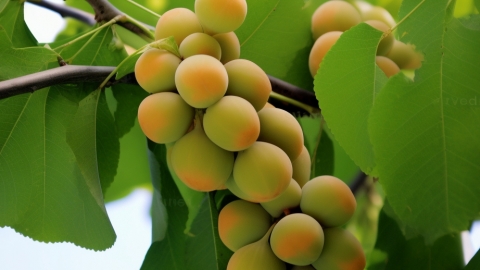Are ginkgo nuts edible?
Generally speaking, ginkgo nuts can be eaten, but they must be properly processed and consumed in limited quantities. The specific analysis is as follows:

Ginkgo nuts contain components such as ginkgolides and ginkgolic acid. If fresh ginkgo nuts are consumed directly without processing, they may irritate the gastrointestinal tract or cause discomfort. However, after being boiled or thoroughly cooked, the levels of harmful substances can be reduced. Consuming moderate amounts allows one to enjoy their unique flavor and obtain certain nutrients. It should be noted, however, that ginkgo nuts are not a regularly recommended food item, and caution should be exercised during consumption.
Before eating ginkgo nuts, the shell and light yellow seed coat must be removed. They should then be briefly blanched in boiling water and thoroughly cooked through boiling, roasting, or other heating methods. The quantity consumed each time must be strictly controlled—generally no more than 10 nuts for adults, and even less for children, to avoid excessive intake that may cause discomfort such as nausea, vomiting, or dizziness. Absolutely no raw consumption of ginkgo nuts is advised, nor should spoiled or rancid nuts be eaten. If any physical discomfort occurs after consumption, stop immediately and seek medical attention promptly to ensure safety.








